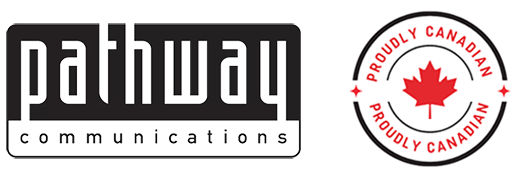Tech support plays a vital role in delivering excellent customer service for your business. It’s often the first line of defence when something goes wrong on your customer side, and how well it’s managed can significantly impact customer satisfaction, productivity, and even revenue.
If you’re considering outsourcing your tech support, it’s essential to know what success looks like and how to measure it. That’s where tech support performance metrics come in.
These aren’t just numbers on a dashboard. They’re powerful indicators of how well your support system is working and whether your outsourced provider is living up to your expectations.
Let’s break down the key tech support metrics and KPIs every business should understand before handing off their support operations.
Why Tech Support Metrics Matter
Before we dive into the metrics, let’s clarify why they’re important.
When you outsource tech support, you need visibility. You are trusting an outside team with your customer experience, internal operations, and often, your brand reputation. So you need transparency, which metrics offer. They help you evaluate performance, ensure accountability, and drive continuous improvement.
In short, metrics translate service into measurable business value.
Learn more about why Tech Support matter: https://bit.ly/3HgWeR7
The Most Important Tech Support Performance Metrics
- First Contact Resolution (FCR)
Why it matters: Resolving an issue on the first interaction is a strong indicator of support efficiency and agent expertise. It also improves customer satisfaction.
According to a study by SQM Group, companies with high FCR see up to 30% higher customer satisfaction. Even better, every 1% improvement in FCR can lead to a 1% reduction in operating costs.
Target: Aim for an FCR of 70% or higher.
- Average Response Time
Why it matters: This measures how quickly a support agent responds to a ticket or call. Long wait times can lead to frustration and churn.
Target: Less than 1 hour for email/chat, and under 30 seconds for phone support, depending on the channel and industry.
- Average Resolution Time (ART)
Why it matters: Speed matters, but so does quality. This metric tracks how long it takes to fully resolve an issue after it’s first reported.
Target: Varies by complexity, but faster resolution times typically correlate with higher customer satisfaction and lower support costs.
- Customer Satisfaction Score (CSAT)
Why it matters: This direct feedback tells you how happy customers are with the service they received.
How it works: Usually measured through post-interaction surveys asking, “How satisfied were you with the support you received?”
A good CSAT score is 85% or higher for tech support teams.
- Ticket Volume
Why it matters: Helps you understand demand and staffing needs. Spikes may indicate product issues or seasonal trends.
Also useful for tracking reductions in volume over time as self-service tools and knowledge bases improve.
- Resolution Rate
Why it matters: This metric shows how many tickets are resolved compared to those opened. A low rate may suggest escalations or process inefficiencies.
Pro tip: Pair this with FCR for a more complete view.
- Escalation Rate
Why it matters: If too many tickets are being escalated to Tier 2 or Tier 3, it may suggest that Tier 1 isn’t adequately trained—or that the issues are becoming more complex.
Goal: Keep Tier 1 resolution strong and minimize unnecessary escalations.
- Net Promoter Score (NPS)
Why it matters: Measures customer loyalty by asking how likely a customer is to recommend your company.
A high NPS indicates that your tech support is contributing to overall brand trust.
- Agent Utilization Rate
Why it matters: Measures how efficiently your agents are being used. It’s a key productivity metric and impacts staffing decisions.
Ideal Range: Between 70% and 85%, depending on workload and support model.
- Cost per Ticket
Why it matters: Helps you calculate ROI and assess whether outsourcing is truly more cost-effective than an internal team.
How to Use These Metrics
Understanding these tech support KPIs isn’t just about tracking numbers—it’s about taking action. Use them to:
- Set realistic service level agreements (SLAs)
- Monitor your provider’s performance
- Identify areas for improvement
- Align support outcomes with business goals
Ready to Outsource Tech Support? Choose a Partner That Tracks What Matters
At Pathway Communications, we don’t just offer tech support. We offer accountability. Our support teams are built on a foundation of measurable performance, ongoing optimization, and deep alignment with your business goals.
Our service model is built around the metrics that matter most:
- Lower ticket volumes
- Faster response and resolution times
- Higher customer satisfaction and FCR
- Clear reporting and accountability
Whether you’re looking to reduce ticket volume, improve response times, or simply deliver a better customer experience, we track the right metrics so you can see real results.
Let’s talk about how our tech support solutions can drive value for your business.



